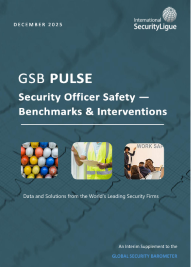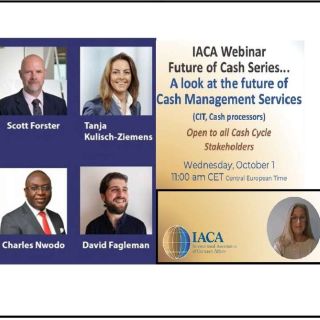
A backlash against governments and businesses pushing a cashless future gained momentum this month when a group of Americans filed a lawsuit against the U.S. Department of the Interior for not allowing people to pay with cash to enter the country’s national parks. From Melbourne to Hyderabad, citizens have voiced objections to curtailing the freedom to pay in cash and expressed concerns about the security and privacy of digital payments.
Key Points
- A lawsuit in the U.S. against its National Park Service for refusing cash at park entrances is an example of grassroots efforts—seen in many countries—to push back against cashless operations.
- Studies suggest a cash alternative should always be available due to concerns over privacy, security, and resilience; and to prevent discrimination against individuals who—for a variety of reasons—are unable to clear the hurdles necessary to participate in electronic payment networks.
- Consumers can voice their objections at establishments that refuse cash and contact elected officials to advocate for legal protections for cash.
Latest Salvo in Fight Against Cash Discrimination
The U.S. National Park Service (NPS), a bureau of the Department of the Interior, has been gradually expanding a cashless entrance-fee payment scheme—and now 29 national parks, national historic sites, and national monuments refuse to accept cash for payment of entrance fees. Because U.S. cash currency is legal tender for all public charges, that policy is in clear violation of federal law, according to a lawsuit filed in the U.S. District Court for the District of Columbia in March.
“NPS denies those without bank accounts (estimated to be 5.9 million American households) and the underbanked households without credit cards—as well as Plaintiffs asserting their lawful right to pay in cash—access to [NPS sites],” the lawsuit says.
“NPS’s violation of federal law cannot be overlooked in favor of any purported benefit NPS Cashless could hope to achieve such as reducing logistics of handling cash collected.”
The lawsuit does not ask the NPS from accepting card or digital payments, but instead asks to require the NPS to restore freedom to citizens to pay in cash if they need or choose to. It is the latest example of a growing backlash against discriminating against consumers who prefer to tender payment or deal in cash.
In Australia, where business owners can reject customers based on their payment preference, a “Cash Only Week” movement garnered traction on social media last July, with thousands taking part in vocal opposition to fees and increases in credit card charges. "Stop paying fees and charges that big corps impose on us," and "Start asking for better deals with cash,” read a protest flyer. Some cities are also taking steps to protect consumer freedom. In the U.S., for example, San Francisco, Philadelphia, and New Jersey have recently banned cashless stores.
Among the forces driving the movement is fear of fraud, as noted recently in research of public attitudes in Africa (““I Prefer to Remain Old School and be Safe”: Fear of Fraud and Governance of Risk in Nigeria’s Cashless Ecosystem,” Salus Journal, vol. 11, issue 2, 2023). “The prevalence of fraud within the cashless ecosystem … have led to doubt or lack of trust or avoidance behaviour and, lately, ‘cautious banking’.” Fear of fraud, indirect experiences of fraud, and lack of perceived fraud governance is causing people to want to stick with cash-based banking options, the study found.
The rise of electronic payment methods has been accompanying by growing concern over their security, notes a study in Asian Accounting and Auditing Advancement (“From Cashless Transactions to Cyrptocurrencies: Assessing the Impact of Digitalization on Financial Security,” 2023). “Identity theft, fraud, and data breach incidents have brought attention to the weaknesses in electronic payment systems and the necessity of solid security measures to protect financial transactions in the digital era.”
Security concerns were also identified as a primary reason that some young people expressed skepticism of the "Digital India" campaign, according to a recent study, (“Study on Awareness of Payment and Adoption of Digital Payment System among Commerce Students,” International Journal for Multidisciplinary Research, 2023). However, technical difficulties were an even greater complaint.
Additionally, the purported financial savings from cashless transactions are not squaring with reality, as noted in the lawsuit against the U.S. National Park Service. “There is an increased cost to the NPS in going cashless, such as additional processing fees that will be borne by NPS and by visitors who ultimately fund the Federal Government through taxes, in addition to personal surcharges and bank fees visitors may incur under NPS Cashless policy.” Anecdotally, many park visitors note that customer service has not improved at parks that have a cashless policy, refuting another reason given for it.
Beyond the false economy of digital payments, more fundamental issues are also giving momentum to the fight against cashless mandates, including consumer freedom and equity. The American Civil Liberties Union is a nonprofit human rights organization founded in 1920 and it identifies multiple reasons for pushback against cashless stores and operations.
There are privacy concerns, as digital payments typically allow an intermediary to learn about transactions, as well as lack of fairness, as bureaucratic barriers and identification requirements can prevent many poor, elderly, and undocumented people from participating in cashless economies. Also, because the current credit card system effectively serves to transfer money from poor households to high-income households, according to a study by the U.S. Federal Reserve.
Merchants can also lose out, because of high “swipe fees” that result from a lack of real competition in the credit card market. “If cashless stores are allowed to become widespread, that will harm the many merchants who either discourage or flat-out refuse to accept credit cards due to these fees,” according to the nonprofit.
The group also warns against strict reliance on digital payments, which can make societies less resilient. “The nationwide outage of electronic cash registers at Target stores [in 2019] left customers unable to make purchases — except those who had cash. That’s a reminder that electronic payments systems can mean centralized points of failure — not just technical failures like Target’s, but also security failures.” The group says A cashless society would also leave people more susceptible to economic failure on an individual basis: if a hacker, bureaucratic error, or natural disaster shuts a consumer out of their account, the lack of a cash option would leave them few alternatives.
What Can Consumers Do?
Faced with vendors who refuse to accept cash, advocacy groups propose that consumers voice their objection to their policy and ask that their complaint be shared with management or refuse to provide a credit card if they aren’t given very clear advance notice that cash is not accepted, and to leave without purchasing anything. The group also suggests contacting elected representatives to encourage them to prevent establishments from refusing to accept cash payments.
See our Cash-in-Transit initiative for more information.






